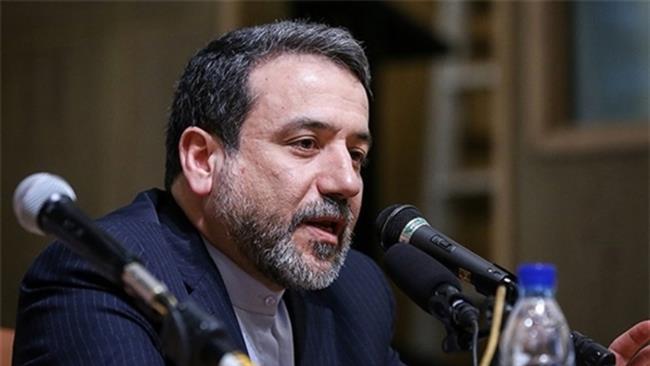A senior member of Iran nuclear negotiating team, Abbas Araghchi, says the stop in missile tests has nothing to do with the Joint Comprehensive Plan of Action (JCPOA).
Speaking at a session of parliament’s Foreign Policy and National Security Committee Sunday on JCPOA, Araghchi said, “Our missile tests are not the concern of Resolution 2231; the tests might have been stopped for some other reasons but none of them has anything to do with JCPOA.”
He also said the Iranian Foreign Ministry has no sensitivity to present a bill on JCPOA to parliament.
[…]
Certain groups, Araghchi added, resort to articles 77 and 125 of the Constitution, asking for presentation of a bill on JCPOA to parliament and its approval, while others believe JCPOA needs not be endorsed by the chamber.
However, politically speaking, he said, “There should be a balance between commitments of Iran and of P5+1, JCPOA consideration in parliament will add to Iran’s commitments—something that is not consistent with the JCPOA spirit, that is observing the balance. However, we do not have any sensitivity about submitting a JCPOA bill.”
He said that a comparison between Resolutions 2231 and 1921 will show to what extent limitations were set for Iran militarily.
“Restrictions enshrined in Resolution 1921 are many times more than those of Resolution 2231. This means we managed to scale down the strength of sanctions, i.e. replacing ban with limitation,” he added.
The official added, “This means that the arms embargo envisioned by Resolution 2231 has nothing to do with JCPOA. Furthermore, the arms embargo that is the subject of Resolution 2231, is not binding and we can skip its implementation.”
Araghchi further said, “The removal of the arms embargo has never been part of our red lines. The Supreme Leader has declared that the first priority is the elimination of sanctions, economic and financial restrictions. Other sanctions should be lifted in intervals.”
As for the joint commission, he said, “It is a body for settlement of Iran-P5+1 disputes. The commission will, per Annex 4, have working group(s) to help iron out likely disputes among countries. The commission’s members are Iran, the EU and P5+1. The commission approvals are on the basis of consensus.”
As for SWIFT, he said it is both against Iranian banks and individuals, both legal and real entities. He said 800 legal and real entities are freed from SWIFT restrictions and only about 240 legal and real entities are still within the scope of SWIFT concern and Iran is not an exception.
In conclusion, Araghchi said, “Iran’s model had already been observed in the case of other countries. India, Japan, Brazil, and Argentine are the instances. For example, at a juncture, 25 percent of the budget of the International Atomic Energy Agency was spent on inspection of Japan. The reason was concern over Japan’s record of militarism.”
